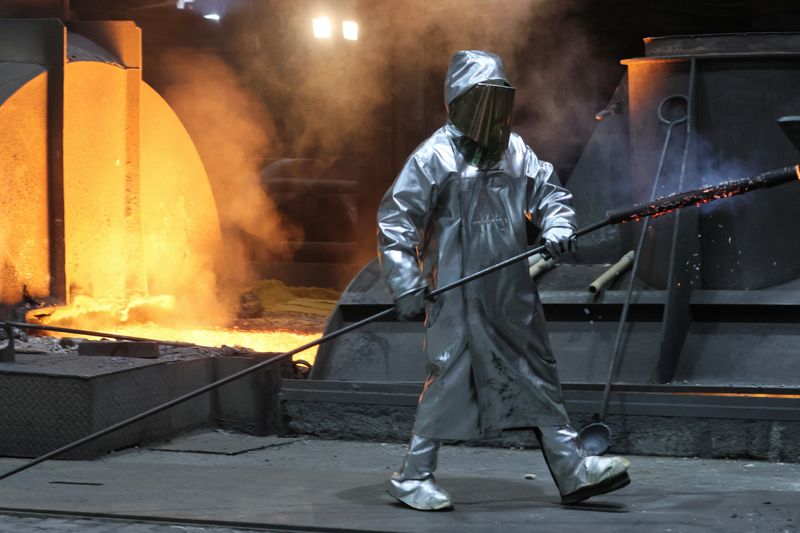BERLIN (Reuters) -German industrial production fell more than expected in December, driven by a plunge in output from energy-intensive sectors, the federal statistics office said on Tuesday.
Industrial production decreased by 3.1% on the previous month, the office said. In a Reuters poll, analysts had pointed to a drop of 0.7% for the month.
The drop was more severe in energy-intensive industrial sectors, where production decreased by 6.1% in December compared with November.
This illustrates how severely the energy crisis is hurting industry, said Carsten Brzeski, global head of macro at ING.
"The former growth engine of the German economy is stuttering and improvement is not really in sight," Brzeski said.
Germany, hardest hit by the de-facto end of Russian gas supplies to Western Europe, asked households, businesses and industry to try to meet a nationwide 20% gas savings target to help avoid a gas shortage over winter.
In December, gas consumption in industry was down 15.4% compared to the corresponding 2018-2021 average, according to the federal network regulator.
"MISERABLE END TO 2022"
For 2022 as a whole, German industrial production was 0.6% lower in calendar-adjusted terms than in 2021 and down 5.0% from the pre-pandemic year of 2019.
"This completes a miserable end to 2022 for Germany's economy following the crash in retail sales and plunge in exports," Pantheon Macroeconomics' chief eurozone economist Claus Vistesen said.
According to Pantheon's estimates, German industrial production fell by 0.7% in the fourth quarter. The first quarter of 2023 will be worse, Vistesen said.
While industrial production fell in December, German industrial orders rose by 3.2%, beating forecasts and posting the biggest increase in more than a year thanks to strong domestic and eurozone demand, data showed on Monday.

The slowdown in industry in the winter half of the year was expected, the economic ministry said on Tuesday.
However, it said the optimistic business outlook seen in surveys and the easing of material bottlenecks, together with the still well-filled order books, indicated the economic slowdown in the winter was likely to be mild.